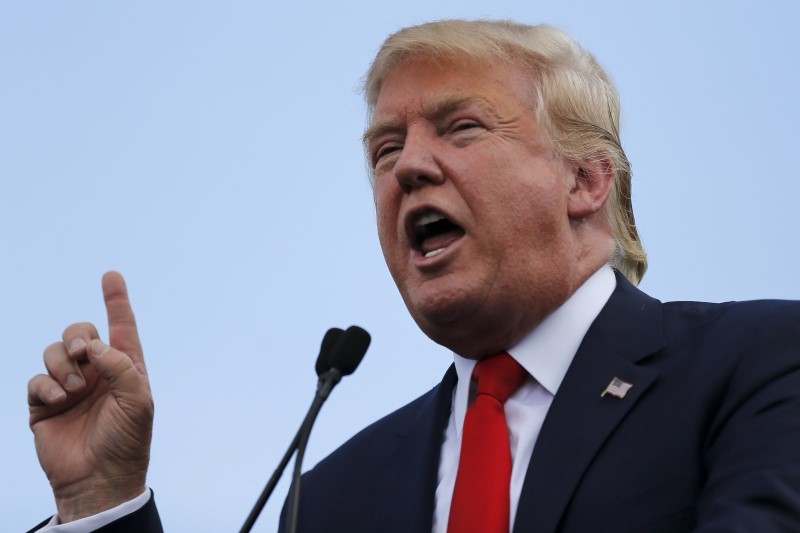WASHINGTON (Reuters) - Donald Trump has surged ahead of the pack of Republican presidential candidates in the key state of Iowa, knocking off Wisconsin Governor Scott Walker, who had been the leading contender there, a poll released on Friday showed.
Walker had been leading among the 17 Republicans seeking the party's nomination for the November 2016 election in the early voting state of Iowa, which borders Wisconsin.
The Quinnipiac University survey showed 27 percent of likely Republican caucus voters in the Midwestern state backed Trump, the outspoken businessman and television personality who has seen his lead in national public opinion polls grow in recent weeks despite a string of controversial comments.
Another 21 percent said they supported former neurosurgeon Ben Carson and 9 percent backed U.S. Senator Ted Cruz of Texas, a favorite of the conservative Tea Party movement.
The university's July poll found Walker leading among 18 percent of likely participants in the state's Feb. 1 caucus, followed by Trump and Carson with 10 percent each. In the poll released on Friday, just 3 percent said they would pick Walker.
"With five months until the balloting, anything can happen. But the field has become a two-tiered contest – Donald Trump and Ben Carson ahead and everyone else far behind," Peter Brown, assistant director of the Quinnipiac University Poll said in a statement.
The results also showed the handicap that Washington experience has become in the minds of potential Republican voters, Brown said.
He added that Carson, who scored better than Trump among those surveyed when it came to honesty, empathy and temperament despite Trump's edge on leadership, pointing to the ex-surgeon's potential to gain support when other Republicans drop out of the race.
The findings also highlight the challenge for Walker, who had been leading most Iowa polls earlier in the summer and has in recent weeks tried to jump-start his campaign.

Quinnipiac's survey released on Friday polled 1,038 likely Iowa Republican Caucus participants from Aug. 27 to Sept. 8 and had a margin of error of plus or minus 3 percentage points.